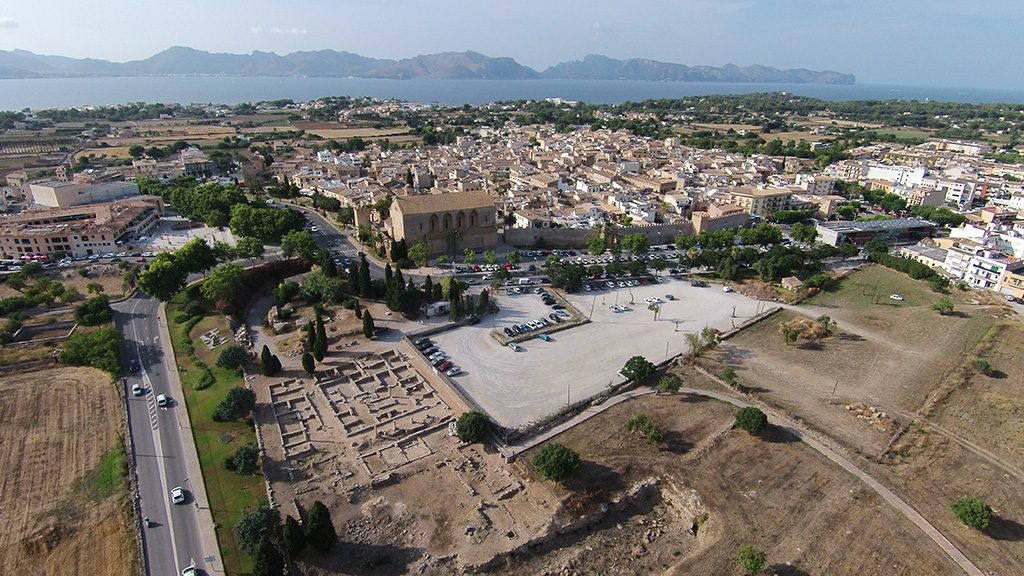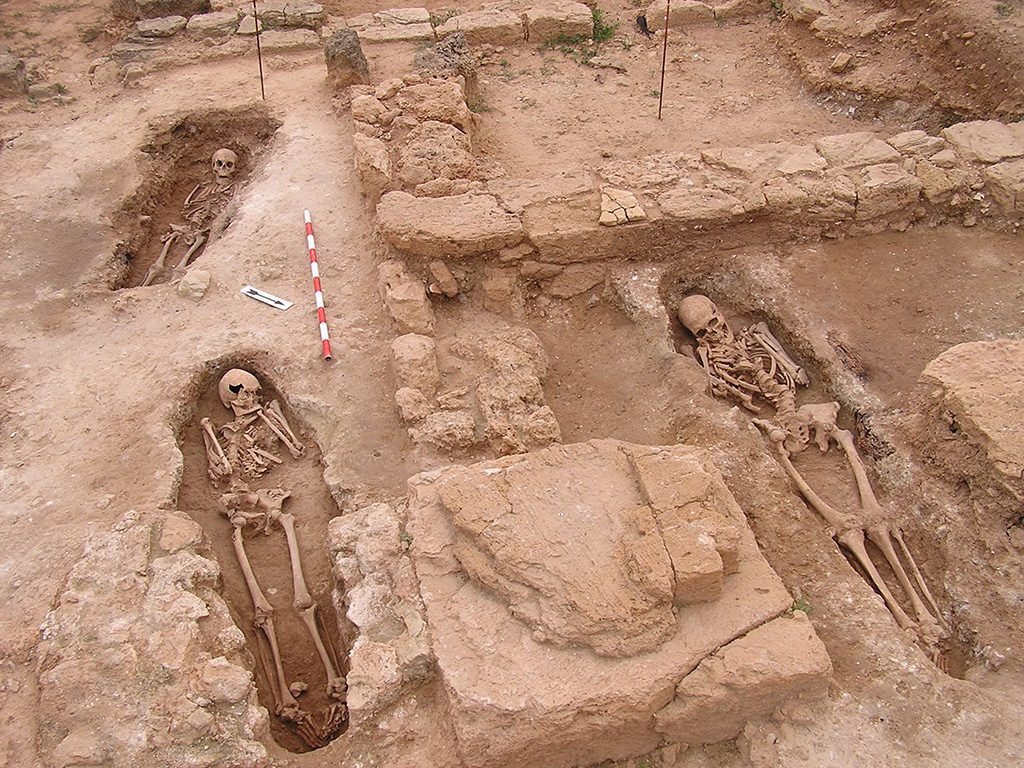The Roman city of Pollentia (Alcúdia, Mallorca) is one of the main cities for the study of the Roman period in Spain. Archaeological excavations conducted since 1923 have uncovered the forum, residential quarters, the theater and several necropolises among other remains. The city was founded after the conquest of the Balearics by Quintus Caecilius Metellus in 123 BCE. At the end of the 3rd century CE, a fire destroyed many parts of the city. However, the city continued inhabited through the Vandal (455 CE), Byzantine (534 CE) and the Islamic (902/903 CE) occupations.
Over the forum area, a large necropolis with more than 300 graves has been excavated since 1980. This cemetery was traditionally dated to the 4th century CE, right after the fire. However, recent excavations have yielded data to question this dating. The types of inhumation graves, the disposition of the bodies and the lack of goods suggest that is a Christian cemetery from the late antique period but dated at least after the 7th century CE.
In order to obtain an absolute chronology, 14C dating was applied to thirteen bone samples. The results are striking as the dates, ranging mainly from the tenth to the twelfth centuries, fall into the Islamic period (902/903-1229). Muslims were buried in a lateral position with the head towards the East and these graves did not follow Muslim practices. The results are extremely important because provide archaeological evidence for the existence of non-Muslim communities on the island in that period. The graves had typologies and rituals of deposition of the bodies seen in other Christian cemeteries. Were they Christians? If so, were they descendants of the Christian communities that inhabited the city in Late Antiquity or newcomers introduced by the Muslims? Were they Jews? The mystery remains unsolved, but the archaeological identification of a non- Muslim community living in a Muslim world in the Balearics opens new possibilities for the study of these minorities as well as on interaction, tolerance, and co-existence issues, linking in this way past and present.
Reference

